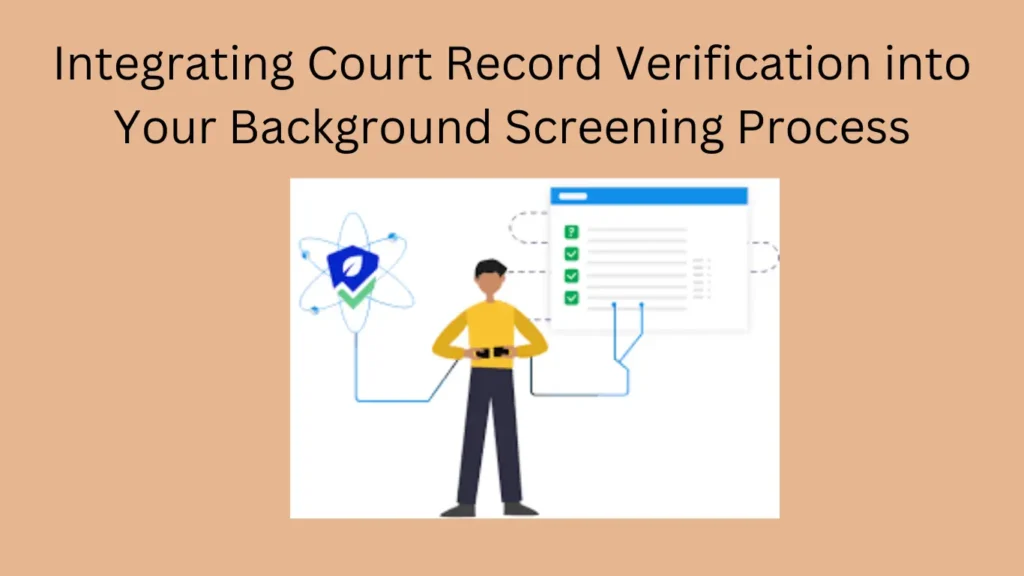Introduction
Integrating court record verification into your background screening process is essential for making informed hiring decisions and ensuring the safety and security of your workplace. This guide provides helpful, reliable, people-first content to help you seamlessly integrate court record verification into your background screening process.
Why Integrate Court Record Verification?
- Enhanced Risk Management Court record verification helps identify candidates with a history of criminal behavior or other red flags, allowing you to mitigate potential risks to your business.
- Legal Compliance Integrating court record verification ensures compliance with relevant laws and regulations, such as the Fair Credit Reporting Act (FCRA), reducing the risk of legal issues and penalties.
- Improved Hiring Decisions By conducting thorough background checks, including court record verification, you can make more informed hiring decisions and hire candidates who are a better fit for your organization.
- Maintaining a Safe Work Environment Screening out individuals with a history of violence, theft, or other misconduct helps create a safe work environment for your employees and reduces the risk of workplace incidents.
Steps to Integrate Court Record Verification
- Understand Legal Requirements Familiarize yourself with the legal requirements for background checks, including court record verification, to ensure compliance with relevant laws and regulations.
- Choose a Reliable Provider Select a reputable background check provider with experience in court record verification and a track record of compliance with legal requirements.
- Obtain Consent Obtain written consent from candidates before conducting a background check, as required by the FCRA and other laws.
- Collect Necessary Information Collect accurate information from candidates, including their full name, date of birth, and other identifying information, to conduct a thorough court record verification.
- Verify Information Verify the accuracy of court records and other information provided by candidates to ensure you have a complete and accurate picture of their background.
- Document Your Process Keep detailed records of your background check process, including consent forms and communication with candidates, to demonstrate compliance with legal requirements.
- Review and Update Policies Regularly review and update your hiring policies and procedures to ensure they reflect current laws and best practices for background checks.
Conclusion
Integrating court record verification into your background screening process is crucial for making informed hiring decisions, ensuring legal compliance, and maintaining a safe work environment. By following these steps and best practices, you can seamlessly integrate court record verification into your background screening process and protect your business from potential risks. Creating helpful, reliable, people-first content is our goal, and we hope this guide has provided valuable insights into integrating court record verification into your background screening process.
For further Inquires Contact Us
FAQs
Why is court record verification important in the background screening process?
Court record verification helps identify candidates with a history of criminal behavior or other red flags, enhancing risk management and ensuring a safe work environment.
What legal requirements should be considered when integrating court record verification?
It is essential to comply with relevant laws and regulations, such as the Fair Credit Reporting Act (FCRA), which requires obtaining written consent from candidates before conducting a background check.
How can I choose a reliable provider for court record verification?
Select a provider with experience in court record verification and a track record of compliance with legal requirements. Look for reviews and testimonials from other clients.
What information do I need to collect from candidates for court record verification?
Collect accurate information, including the candidate’s full name, date of birth, and other identifying information, to conduct a thorough court record verification.
How can I ensure the accuracy of court record verification?
Verify the accuracy of court records and other information provided by candidates. Keep detailed records of your background check process to demonstrate compliance with legal requirements.
